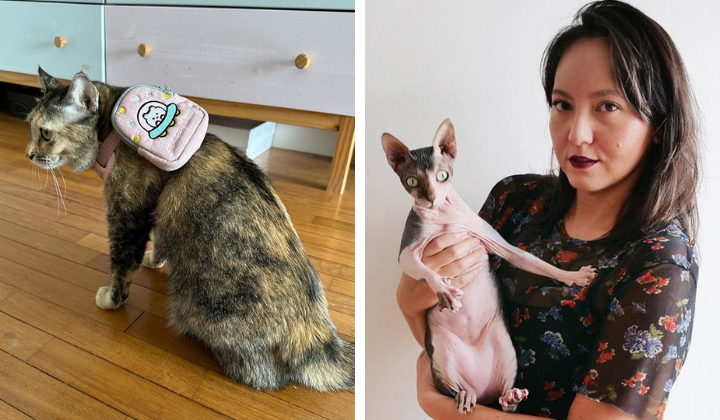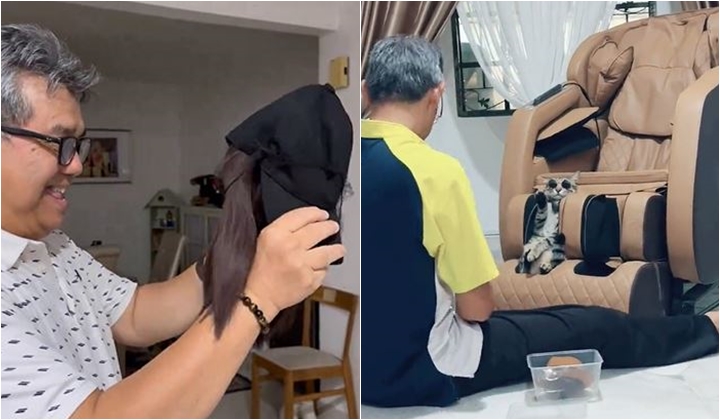All You Need To Know Before Introducing Your Pet To Your Newborn
Make it a positive experience with some preparation and early adjustments.
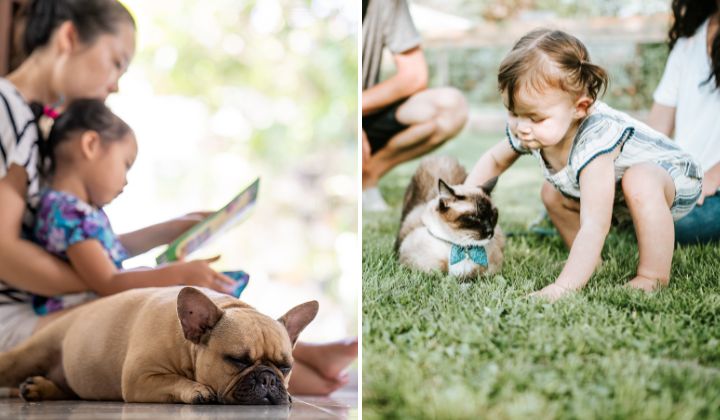
Subscribe to our Telegram channel for the latest stories and updates.
One of the most joyful times for a family is when a new baby is brought home. However, it might be a difficult time for the family pet. Four-legged family members may become uneasy when a new permanent fixture enters their lives – especially one that smells foreign, behaves erratically, and makes squealing noises.
Even though you can’t wait to bring your baby home, you’ll need to make sure that everyone and everything is prepared for the arrival of your little one. That includes getting your pet and your living space ready for the change.
Bringing home a new baby can be a positive experience for both you and your pet with some preparation and early adjustments to their routine.
Before the baby arrives
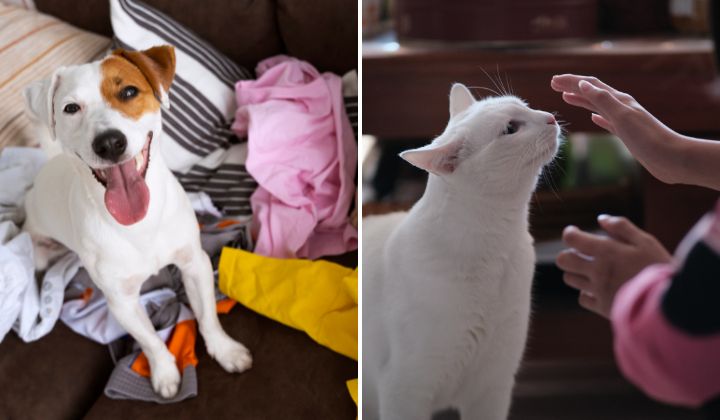
Don’t wait until the last minute to drop the baby bomb on your furry friends. It can take some time to adjust your pet’s routines, so it’s important to reevaluate some ground rules before your baby is born, and start putting them into practice in advance.
Allowing your pet to explore new furniture and equipment will help it become accustomed to different smells. You should also get them familiar with baby noises and behavioural changes that’ll take place with a baby around. This can include playing a recording of a newborn crying or carrying around and talking to a baby doll. It might raise some eyebrows, but it’s for the best.
Before the little one arrives, it’s also important to ensure that your pet is clean and healthy. This means getting their nails trimmed, getting them dewormed and making sure their vaccinations are up to date.
Experts suggest bringing some baby blankets or clothes home for your pet so that they can familiarise themselves with the baby’s smell. We suggest taking this advice with a grain of salt, because some experts think that it’ll cause more harm than good.
When the baby arrives
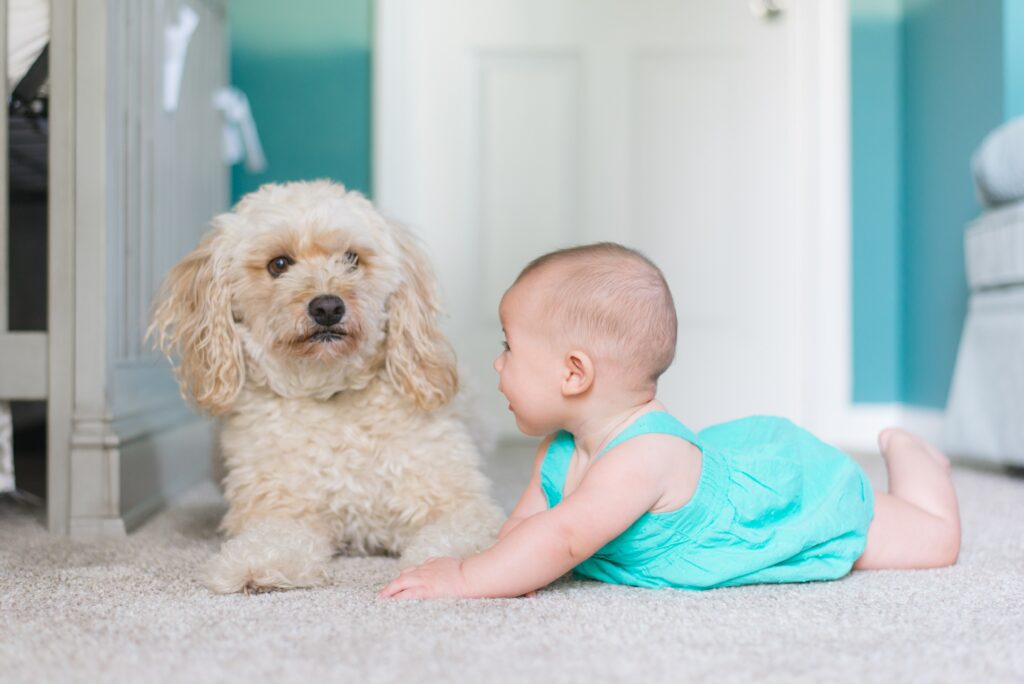
It’s important that your pet and newborn have a friendly, non-threatening first encounter. If you own a dog, make sure it’s on a leash. There should be at least two adults present when you first introduce your new baby. One adult should be in charge of the baby and the other should be in charge of the pet.
Introduce the baby after the pet has calmed down and become comfortable with one of the family members. To help your pet form a positive association with your baby, let them familiarise with the new baby and praise good behaviour.
If your cat hides when the baby is born, don’t be alarmed – this is typical. Preparing a quiet space for your cat to ‘seek refuge’ might be helpful.
Many animals come to associate a baby’s presence with interruption, restriction, or even punishment. The intention is to show your pet that “wonderful things” happen when your little one is around. Reward your pet for being obedient and chilled out in the presence of your child so they form a good bond.
It’s also important to give your pets their time of day – don’t forget that they are still a part of the family! It’s extremely challenging to juggle between a newborn and your furbaby. But whenever you can, even if it’s just five minutes of sitting alone with them or a quick trip to the groomers, spending meaningful time with your pet will let ‘em know that they’re still a beloved member of the family.
Keeping them safe
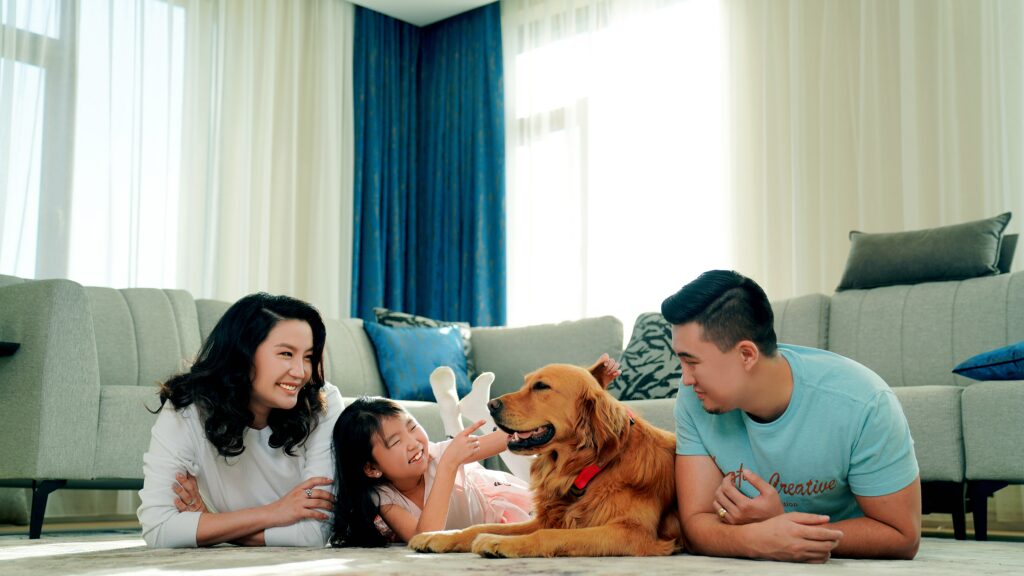
Most issues with pets and babies start when infants begin to crawl and walk. Pets may feel threatened or excited by their unpredictable movements. Sometimes accidental actions can hurt a pet and cause them to respond aggressively.
No matter how much you may trust your pet, never leave your young child alone with them. Very affectionate dogs and cats could unintentionally snuggle up too close to a sleeping baby, which can actually cause the baby to suffocate.
A pet’s temperament can be unpredictable, even if they’ve been around children before. Don’t assume that the two are just playing even if it looks like your pet is putting up with everything the child does.
Any form of baby teasing, especially pulling on the ears or the hair, could incite adverse reactions after a while. An animal may tolerate something, but that doesn’t mean they like it or feel at ease around it.
When it reaches a certain point, they may snap because they’ve had enough. Keep a close eye on how things are going, step in if you need to, and explain to the child that the pet isn’t a toy and needs to be handled with care and respect.
Cuddle buddies!
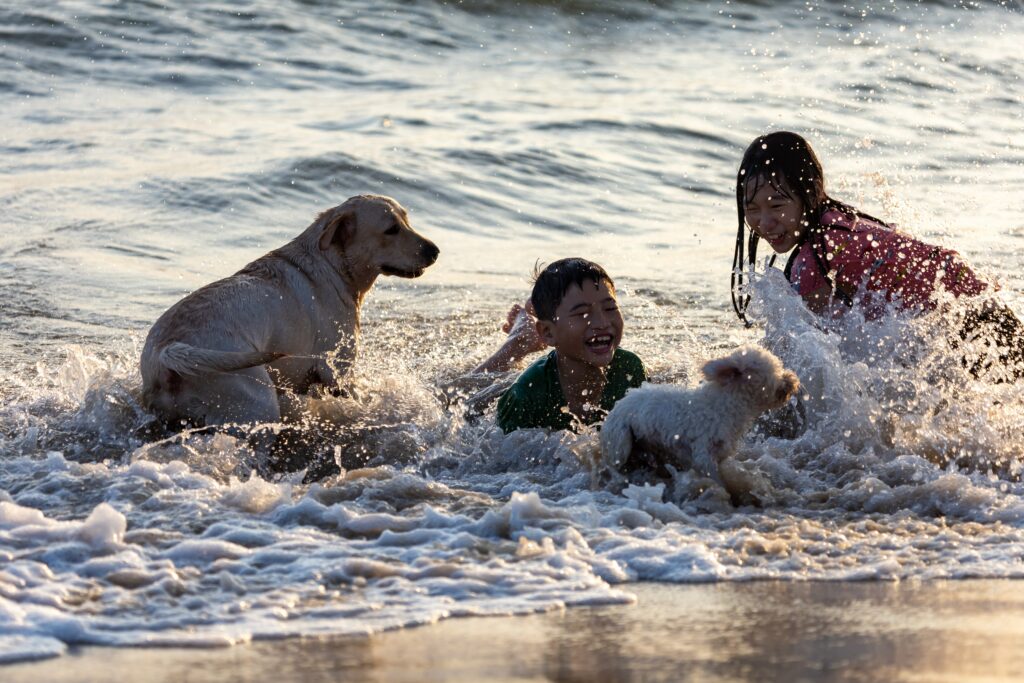
All that said and done, there’s nothing more heartwarming than seeing your babies and furbabies do life together! Pets and children often form a unique, lifelong bond. As your baby grows up with your pet, they will come to learn and understand each other’s behaviours and habits, and develop trust and friendship over time.
Share your thoughts with us via TRP’s Facebook, Twitter, and Instagram.



